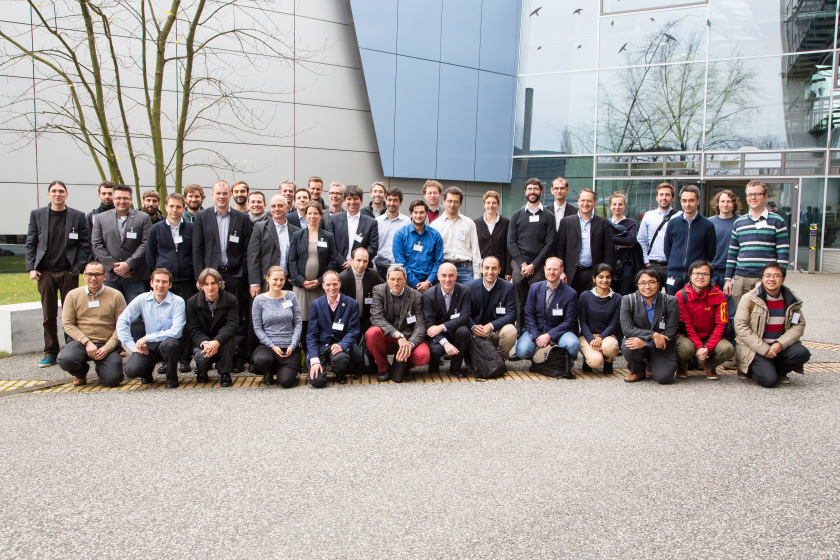European Workshop on Nanophotonics for Solar Energy

Participants of the European Workshop on Nanophotonics for Solar Energy. © HZB
On 25 and 26 November 2015, about 40 researchers from seven European countries visited Helmholtz-Zentrum Berlin to attend the “European Workshop on Nanophotonics for Solar Energy”.
On 25 and 26 November 2015, about 40 researchers from seven European countries visited Helmholtz-Zentrum Berlin to attend the “European Workshop on Nanophotonics for Solar Energy”.
During this workshop, current trends and developments in this field were discussed. Further, future opportunities and possibilities for collaboration were explored during discussions, which were initiated with a talk on funding within the European Commission Horizon 2020 program by Dr. David Kolman from the Brussels Office of the Helmholtz Association. The highlight of the workshop was the Distinguished Lecture by Prof. Thomas F. Krauss from the University of York (UK), in which he shared his vision on the future of Photovoltaics and informed us about the latest research results from his group.
This workshop was initiated and organized by Christiane Becker, Sven Burger and Klaus Jäger within the Berlin Joint Lab for Optical Simulations for Energy (BerOSE), which is a collaboration between Helmholtz-Zentrum Berlin, Zuse Institute Berlin and the Free University Berlin.
Klaus Jäger
https://www.helmholtz-berlin.de/pubbin/news_seite?nid=14387;sprache=en
- Copy link
-
The BIPV living lab at the centre of an international comparative study
The BIPV living lab at HZB in Berlin-Adlershof is at the centre of an international comparative study for the simulation of coloured solar façades.
-
The twisted nanotubes that tell a story
In collaboration with scientists in Germany, EPFL researchers have demonstrated that the spiral geometry of tiny, twisted magnetic tubes can be leveraged to transmit data based on quasiparticles called magnons, rather than electrons.
-
Bright prospects for tin perovskite solar cells
Perovskite solar cells are widely regarded as the next generation photovoltaic technology. However, they are not yet stable enough in the long term for widespread commercial use. One reason for this is migrating ions, which cause degradation of the semiconducting material over time. A team from HZB and the University of Potsdam has now investigated the ion density in four different, widely used perovskite compounds and discovered significant differences. Tin perovskite semiconductors produced with an alternative solvent had a particular low ion density — only one tenth that of lead perovskite semiconductors. This suggests that tin-based perovskites could be used to make solar cells that are not only really environmentally friendly but also very stable.
